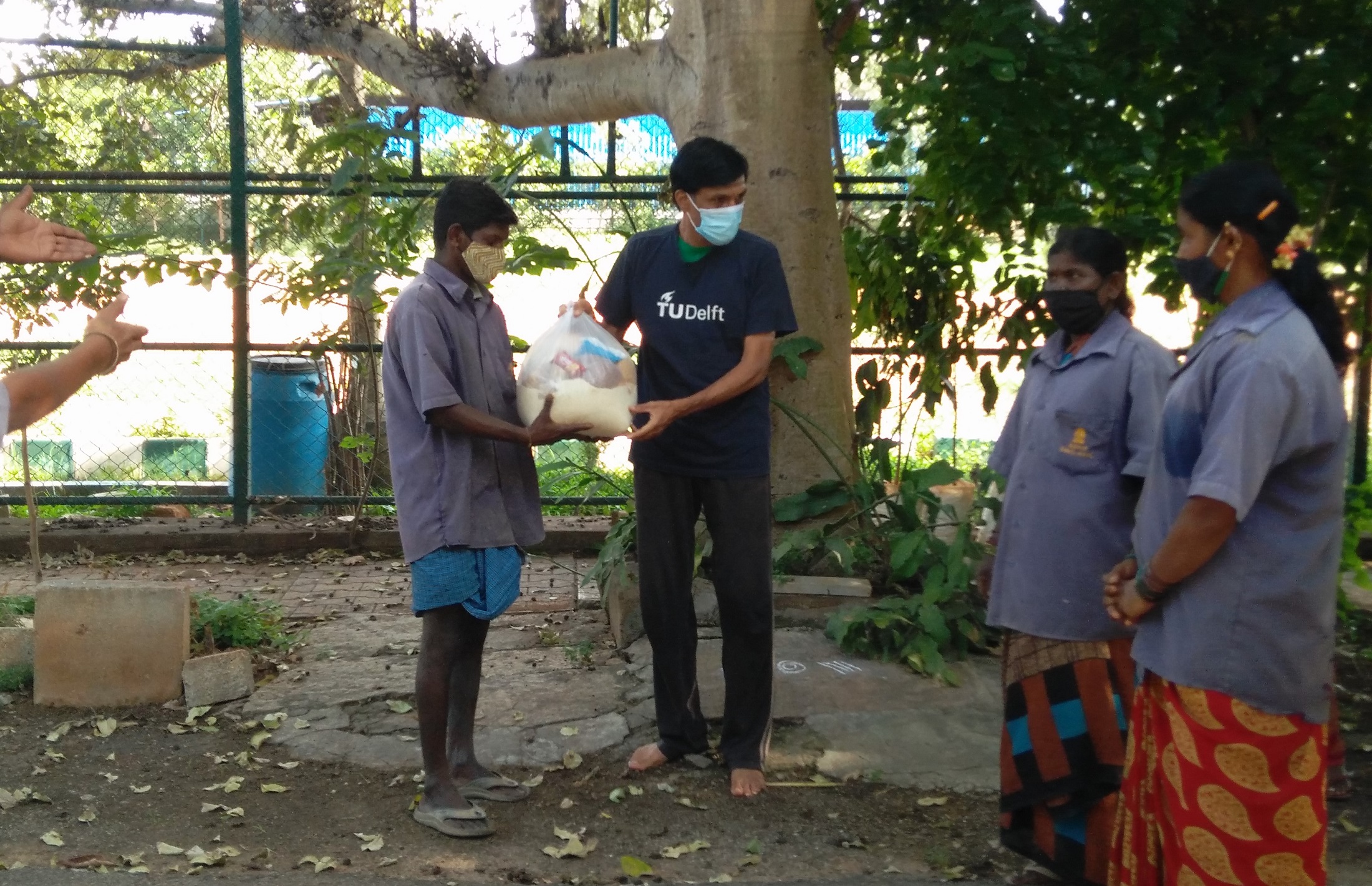Watching COVID take many lives around him, Associate Professor RangaRao Venkatesha Prasad saw it as his duty to help his local community.
Dr. Venkatesha Prasad (centre in TU Delft shirt) distributing food packages in his community. (Photo: Personal collection)
“I’m only 70% at TU Delft and I chose this type of split contract because I also wanted to be here in India to take care of my parents.
During the first COVID wave, a close relative passed away. In the second wave, a neighbour who was almost like my mother passed away within three days of being admitted to the hospital. A few months back relatives, as well as family friends, succumbed to COVID. Then in April/May, several people from my alma mater left us. I was terribly scared. That really hit me hard. We have lost so many people. I started thinking there must be something we can do even if it is minuscule.
Bangalore has a population of over 10 million and it’s the technology hub. There are lots of offices, so there is also a large group of people supporting the office workers like with transportation, shops, and catering. So things started getting out of control with so many people in one place. It really took off and around May there were almost 25,000 new infections per day, so we had lockdown again.
The next locality over from where I live has many daily wage workers so if they don’t work, they don’t have money or food. They are forced to come out of their houses. The government was struggling and we can’t expect them to do everything. I started thinking that I had a duty to do my part. We told our housemaid not to come to our house because it was more important to stay safe. Where she lives is not a very developed locality, so many people there are poor. We asked her to connect me with two houses and I said I would take care of those two families by bringing them food and the things they need to prepare two good meals a day for a family of five or so. We asked her to make sure that it was somebody who really needed it.
Then a very nice lady I know, Ms Renuka Gopinath, also wanted to help. She shared the information in WhatsApp groups and said that others would join. We met and discussed the important food items that people would need. We decided to get large amounts of grains and made packages for the families. It costs like INR 600 which is around EUR 7 to feed a family for about a week. It’s just sufficient to make sure that they don’t go hungry and can eat something healthy.
‘If they are safe then we are safe’
Then suddenly lots of people started sending money to my wife. We agreed with a local shop to deliver things to us so in a sense our house became a central point for this activity. To distribute them, we didn’t want to expose people to each other so we asked the people to come to an area near our house where there is a lot of open space. We told them we are not doing charity, but we are simply doing our duty. We respect these people and want them to be safe. And honestly, if they are safe then we are safe. It benefits the whole community. We ended up helping around 125 families. Many people have been involved in this. It was not just me.
With the funds we collected we also purchased masks for local traffic police who are really at the forefront. Many families in our locality organised home-cooked meals for the people working at a local health centre to show that we support them.
I learned the real meaning of two important words through this whole experience. One is teamwork and the other is empathy. We can win against COVID if we work as a team. Cooperation can reduce the number of deaths. And with empathy, it’s something we should all learn. We have to be empathetic.”
Want to be featured in Humans of TU Delft? Or do you know someone with a good story to tell? Send us an e-mail at humansoftudelft@gmail.com
Heather Montague / Freelance writer



Comments are closed.